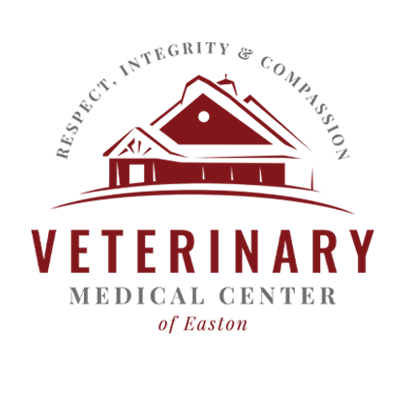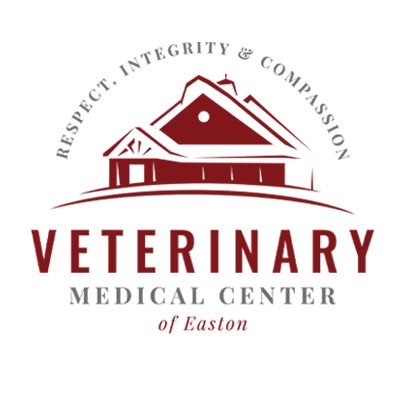Veterinary Medical Center’s surgical team has many years of experience and advanced training in orthopedic and general surgery for dogs and cats. We carefully screen your pet prior to surgery to be sure that your pet is a good candidate for anesthesia. We recommend laser surgery for most routine and complex surgeries. We provide the same level of patient monitoring that you would receive if you were having surgery. All pets that undergo surgery at Veterinary Medical Center are carefully monitored and have their blood pressure, heart rate, rhythm, and blood oxygen levels monitored by a specially designated veterinary technician and high-tech equipment. Your pet will receive pain medication before, during, and after the surgical procedure.
Our top priority for your pet's surgery is to keep them
SAFE & HAPPY
We use state-of-the-art surgical equipment and prioritize educating our clients, so you know the appropriate aftercare for your pet.
We perform a wide range of general and orthopedic surgery, including:
Soft tissue surgery (growth excisions, c-sections, perineal urethrostomies, amputations, FHO’s and soft palate resections)
Orthopedic surgery (for example, ACL repair, trochleoplasty for medial patellar luxations)
Spay and neuter
Abdominal exploratory surgery
Laceration repairs
Oral/periodontal surgery
Emergency surgery (for example, wound repair, foreign object removal)
Urinary bladder surgery
Our surgical services and facilities include:
- • Laser Surgery: Veterinary Medical Center is one of the most experienced veterinary hospitals capable of performing laser surgery. There are numerous advantages to laser surgery:
- • Less pain – Laser energy seals nerve endings as it moves through tissue resulting in your pet feeling less pain post-operatively.
- • Less bleeding – The laser seals small blood vessels during surgery, allowing the doctor to perform surgeries with less bleeding and greater precision.
- • Less swelling – Laser energy does not crush, tear or bruise tissue because only a narrow beam of intense light contacts the tissue and seals small lymphatic vessels to further reduce post-operative swelling.
- • A fully equipped surgical suite capable to perform most types of soft tissue and orthopedic surgery.A fully-trained veterinary and technical nursing staff to ensure the safest, most efficient state-of-the-art procedures for your pet
- • ECG and oxygen saturation monitors
- • Heated surgery tables for greater comfort for your pet
- • Monitored sterilization techniques to verify sterilization is complete
Pain Management
At Veterinary Medical Center, we believe in maximizing the comfort of your pet during and after his/her surgical procedure. Proper pain management improves your pet’s recovery and speeds the healing process. We use a multi-modal approach to pain management. A multi-modal approach refers to the layered administration of small amounts of different drugs to minimize any pain that your pet might feel during or after the procedure. Because we administer lower doses of each individual drug, your pet will experience fewer adverse side effects, more complete pain relief and faster post-operative recovery.

Answers to common questions after your pet returns home following surgery:
Appetite
Decreased appetite can occur after surgery. There are several things you can try:
• Offer favorite foods
• Warm the food slightly above room temperature to increase the odor and taste
• Some pets like low fat cooked chicken, turkey or ground beef with rice. As a bland diet, this may help entice your pet’s appetite following surgery.
If your pet’s appetite is not normal the day after surgery, or if your pet is not drinking water, vomiting, or seems lethargic, please call our office for further instruction.
Bandage, cast or splint is wet, soiled or off
If the bandage becomes soiled, damp, chewed, or chewed off, please do not re-bandage at home. Duct tape and other items can trap moisture within the cast or bandage causing inflammation of the skin and tissues. In some cases, bandages inappropriately applied at home can even cut off the circulation to a limb! Call us immediately if you have concerns about your pet’s bandage. Please also call us if you notice swelling of the exposed toes on the bandaged limb, which can be seen by spreading apart of the toe nails. Confine your pet to a single room or similar small area until you can call us and we can advise you whether the bandage needs to be replaced. After a cast or splint is first removed, it may take 1-2 weeks for your pet to become accustomed to using the leg without the splint.
Constipation, bowel movements
Difficulty having bowel movements can be expected after illness, anesthesia, or surgery. It may take a few days for the gastrointestinal system to return to normal function. Fortunately, it is not vital for your pet to pass a stool on a regular daily basis. Please call if your pet has not passed a stool within 48 hours of discharge from the hospital or appears to be straining to defecate.
Crying/whining
Although vocalizing can indicate discomfort, it can also be associated with other feelings following surgery. Often, pets vocalize due to the excitement or agitation that they feel on leaving the hospital and returning to their familiar home environment. Some pets will also vocalize or whine as the last remaining sedative or anesthetic medications are removed from their systems, or in response to the prescribed pain medication. If crying or whining is mild and intermittent, you may simply monitor the situation. If vocalization persists, please call us for advice. In some cases, a sedative may be prescribed or pain medication may be adjusted.
Diarrhea
Diarrhea may be seen after hospitalization. This can be caused by a change in diet but is more commonly caused by the stress of being away from home. Certain medications prescribed to your pet may also cause diarrhea. If the diarrhea is bloody, lasts longer than 12-24 hours or if your pet becomes lethargic or vomits, please contact us immediately. You can purchase a nutritionally complete bland food from us available in cans or kibble or we can guide you in preparing a home cooked bland diet. We do NOT recommend using any over-the-counter medication to treat the diarrhea. Please call us if there are any questions or problems.
E-collar
We rely on you to keep the E-collar on your pet. While they may not enjoy it initially, they will enjoy even less having to come back to our office for a recheck visit to repair an incision that has been chewed open or treat an infection at the surgery site. They will need to wear the collar for an even longer period if this happens! Most pets become accustomed to the collar within one or two days and they can eat, sleep, and drink with it on. We are counting on you: please keep the E-collar on your pet.
Injury to surgical site
If for any reason you suspect that your pet has re-injured the surgical site, confine your pet and call us immediately for advice.
Medication Refills
If you have given your pet all the pain medication prescribed and you feel your pet still has discomfort, please call and we will be happy to discuss refilling the pain medication.
Pain
Despite the medications we have prescribed, some pets will still show signs of pain at home, such as restlessness or an inability to sleep, poor appetite, lameness or tenderness at the site of surgery. Please confine your pet to limit their activity. Then call us immediately so we can dispense or prescribe additional medication or therapies as necessary to keep your pet comfortable.
Panting
This is commonly seen after surgery. It may indicate soreness but may also be due to anxiety or in reaction to the prescribed pain medication. Please call and we can help determine whether additional pain medication is advised or if the dose needs to be adjusted. We will be happy to recheck your pet for your peace of mind.
Seroma (fluid pocket)
In any healing surgical area, fluid produced during the healing process may accumulate and form a seroma (fluid pocket). Fortunately, this is not painful and does not impair the healing process. Eventually, the body will reabsorb the fluid; so, if the seroma is small, we typically will leave it alone. If it is large, we may remove the fluid with a needle and syringe or even place a drain. If you notice a seroma developing, please call. We may wish to recheck the area to ensure there is no infection.
Shaking/trembling
This is a very common response to physiologic stress after surgery, injury, or any other health abnormality. The amount of shaking or trembling may be dramatic, but it does not always imply severe pain, cold, or distress. It may involve the entire body, or just the area of surgery. If there are signs of pain such as restlessness, lack of appetite, or crying out, or you are concerned about what your pet is exhibiting, please call.
Urination
Some pets may urinate less after surgery or may seem to be unable to control urination. This is usually temporary and may be a side effect of medication, anesthesia drugs, or difficulty assuming “the position” to urinate. Please call if your pet has not produced urine for more than 12 hours. Many pets initially drink less after returning home, so expect less urination at first.
Vomiting
An episode or two of vomiting is occasionally seen after surgery or anesthesia. If the vomiting continues, blood is noted in the vomitus, or if your pet is not holding down any food or water, call to schedule a recheck of your pet by a veterinarian.



